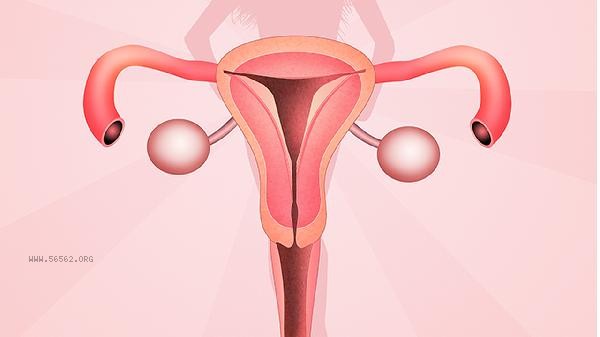Pregnancy generally does not directly lead to polycystic ovary syndrome, but hormonal changes during pregnancy may exacerbate existing symptoms. Polycystic ovary syndrome is a chronic disease caused by endocrine and metabolic abnormalities, mainly manifested as menstrual disorders, hyperandrogenism, and polycystic ovary like changes. During pregnancy, there may be worsening insulin resistance and rapid weight gain, which require strengthened monitoring.

1. Hormonal changes affect
The levels of estrogen and progesterone significantly increase during pregnancy, which may affect the original endocrine balance. Some pregnant women may experience temporary high hormone symptoms, such as increased body hair and worsening acne. These symptoms usually gradually improve after childbirth, but may be more pronounced in pregnant women with pre-existing hyperandrogenism. It is recommended to regularly monitor hormone levels such as testosterone and intervene under the guidance of a doctor if necessary.
2. Increased insulin resistance
Hormones secreted by the placenta can reduce insulin sensitivity, and pregnant women with polycystic ovary syndrome are more prone to abnormal glucose metabolism. During 24-28 weeks of pregnancy, glucose tolerance test is required to screen diabetes in pregnancy. Controlling carbohydrate intake and moderate exercise can help improve insulin sensitivity. Severe insulin resistance may require the use of insulin sensitizers under the guidance of a doctor.
3. Difficulty in weight management
Polycystic ovary syndrome patients themselves have metabolic abnormalities and are more likely to experience rapid weight gain during pregnancy. It is recommended to monitor weight gain weekly, and it is advisable to control weight gain within 11-16 kilograms throughout the entire pregnancy. Choose low glycemic index foods in diet, ensure high-quality protein intake, and avoid high-fat and high sugar diets. Moderate exercise such as yoga and walking for pregnant women can help control weight.

4. Increased risk of miscarriage
Pregnant women with polycystic ovary syndrome have a slightly higher probability of early miscarriage than ordinary pregnant women, which may be related to factors such as high androgen levels and insulin resistance. Early pregnancy requires monitoring of progesterone levels and supplementing progesterone if necessary. Avoid intense exercise and overwork, and maintain a good sleep routine. If vaginal bleeding or abdominal pain occurs, seek medical attention promptly.
5. Postpartum management points
Postpartum hormone levels can rapidly change, and symptoms of polycystic ovary syndrome may recur or worsen. It is recommended to have hormone levels and glucose metabolism indicators rechecked 6-8 weeks postpartum. breastfeeding can help improve insulin sensitivity, but attention should be paid to nutritional balance. Pre pregnancy assessment and conditioning should be conducted before planning another pregnancy to reduce the risk of pregnancy complications. Pregnant women with polycystic ovary syndrome should pay special attention to nutritional balance and ensure the intake of nutrients such as folate, iron, and calcium. Choose whole grains, leafy vegetables, low sugar fruits, and limit refined sugars and saturated fats. Maintain a regular schedule and moderate exercise, avoiding prolonged sitting. Regular prenatal check ups monitor fetal development and maternal indicators, and seek medical attention promptly in case of abnormalities. Adhering to a healthy lifestyle after childbirth can help improve long-term prognosis.






Comments (0)
Leave a Comment
No comments yet
Be the first to share your thoughts!